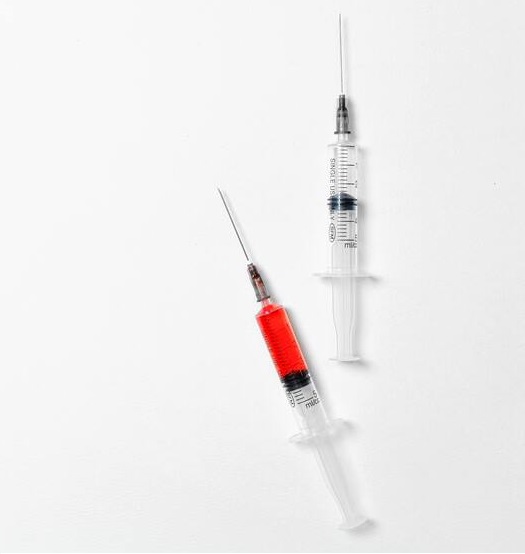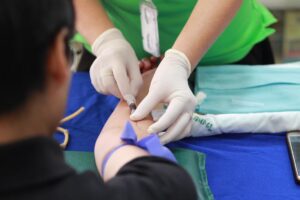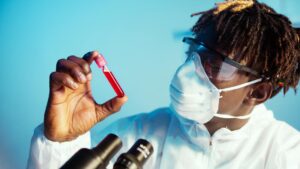
Steps to Overcoming Teenage Anger
I was reminded this year about the benefits of donating blood from Mrs. NeDina Brocks-Capla, Founder and CEO of Sickle Cell Anemia Awareness San Francisco after receiving a flyer for an event “Megablack SF Blood Drive” sponsored by the Red Cross.
I was intrigued for two reasons:
- I have close family friends living with sickle cell disease and have learned about the stress of managing a “crisis”…they popped into my mind.
- I never saw a blood drive geared toward Black donors.
Why is there a blood donation event specifically for Black people? In my true Social Work spirit to question everything, I did my own research.

Here is what I found…
Every year an estimated 6.8 million people in the United States donate blood and 4.5 million will need a blood transfusion. Approximately one in seven people entering the hospital need blood. (5)
- Every two seconds someone in the U.S. needs blood.
- One donation can potentially save up to 3 lives
- Blood donation is essential for surgeries, cancer treatment, chronic illnesses, and traumatic injuries.
- Whether a patient receives whole blood, red cells, platelets or plasma, this lifesaving care starts with one person making a generous donation.
- Only 7% of people in the U.S. have a the universal blood type “ O negative”
- A single car accident victim can require as many as 100 units of blood.
Fast Facts:
- blood donation rates of African American are 25-50% of that of white individuals (2)
- There is a greater prevalence of type O blood in African American and Hispanic/Latino populations.
- Blood donations from African Americans and Hispanic/Latinos can treat a broader cross-section of patients than can blood donations from Caucasians.
- Recruiting new and retaining current Hispanic blood donors is important to maintain the overall volume of blood in the U.S. system.
- rare blood types or medical conditions necessitating multiple blood transfusions, like sickle cell disease, require very closely matched blood products. These blood products many times can only be found in donors with the same racial or ethnic heritage.(6)
Barriers to BIPOC participating in blood donation :
- Historically, the principal barriers to blood donation are fear, inconvenience, perceived medical disqualification, being too busy, not being asked, and apathy (1)
- donation has been associated with increase in trust and decrease in the perceived risk of donation (3)

Why Donate Blood:
This one is pretty straight forward. Donating blood can save lives! You can help save a life.
The flyer I received in February is my reminder to consider donating blood. This blog post is a reminder for you to consider becoming a blood donor.
Red Cross is a great resource to locate a donation drive or sites: https://www.redcross.org/give-blood.htm
-You must be 18 years old or have parental permission if you’re 16 or 17.
-You must weigh 120 pounds or more.
-You need a valid driver’s license or a passport for identification.
-You must be free of any major organ disease, including heart disease, lung disease and -bleeding tendencies.
-You must not be taking antibiotics or other supplements that could influence the donation.
-You must wait 12 months if you had a tattoo applied in a state that does not regulate tattoo -facilities. That includes District of Columbia, Georgia, Idaho, Maryland, Massachusetts, -Nevada, New Hampshire, New York, Pennsylvania, Utah and Wyoming.
-Recent surgery or travel may mean deferral.
Urban Health Group is proud to partner with Sickle Cell Anemia Awareness SF (SCAASF) in helping their participants living with the trait and disease prepare for medical emergencies with our Plan Well for Care Course. To learn more about sickle cell or SCAA, please visit their website site at : https://www.scaasf.org/
1Gillespie TW, Hillyer CD. Blood donors and factors impacting the blood donation decision. Transfus Med Rev. 2002;16:115–130.(2)Shaz, B. H., & Hillyer, C. D. (2010). Minority donation in the United States: challenges and needs. Current opinion in hematology, 17(6), 544–549. https://doi.org/10.1097/MOH.0b013e32833e5ac7(3)Andaleeb SS, Basu AK. Explaining blood donation: the trust factor, attitudes, personality and demographics differentiate donors from nondonors. J Health Care Mark. 1995;15:42–48
(4) https://www.unitypoint.org/livewell/article.aspx?id=d497dcef-68f3-47ac-8eef-16e5f51b9f66
(5) https://moffitt.org/endeavor/archive/the-importance-of-blood-donations/

